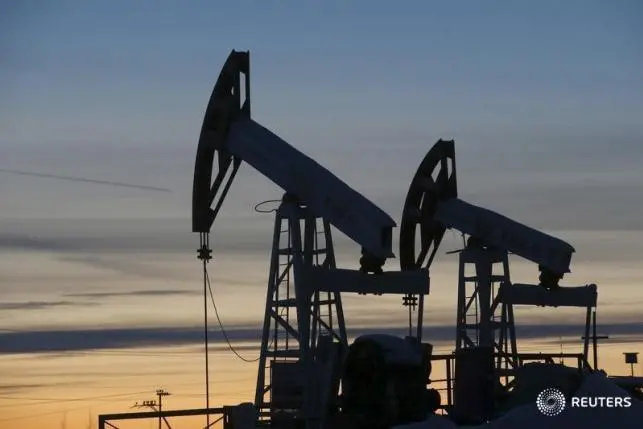PHOTO
One always hears of the large oil reserves in various Arab countries and how long they will last at current production levels. Billions of barrels are still underground in all major Arab exporting countries, and are estimated to last over a century at present production levels. But the real question facing Arab countries is not how much oil they have, but if the demand for oil will continue given the economic changes the world faces. Climate change and the speed of technological advances will make it hard to rely on oil in the near future, irrespective of how large the reserves are.
The share of oil revenues in gross domestic product (GDP) among Arab countries ranges from about 12 percent in the UAE to more than 70 percent in Libya. When compared to a major oil producer such as Norway, where oil revenues are only 3 percent of GDP, one can see the major impact that oil demand and prices have on Arab countries.
The World Bank estimates that oil revenues represent more than 80 percent of total exports in half of the oil-exporting economies in the Middle East and North Africa, making oil dependence a difficult thing to escape. In some countries such as Libya, oil revenues are over 90 percent of exports, while the non-oil sector represents only about 16 percent of the economy, and government subsidies and salaries represent over 75 percent of the fiscal budget. Such nations will face a difficult economic reality that will surely be reflected in their very social and political structures.
To highlight the approaching threat to Arab countries, both those that are oil exporters and those whose labor markets depend on oil economies, amid decreasing demands for their oil: Scotland, for example, can now generate 60 percent of its electricity from renewables and will hit its emissions targets by 2020. In June 2017, an entire province in China was able to run on 100 percent renewable energy for seven days straight as a trial for future plans. In addition, California, the state with the largest economy in the US, has pledged to make a complete transition to renewable energy by 2045.
In fact, a recent study has outlined a way for 139 countries to become powered solely by wind, water, and solar energy by 2050, which highlights both new and emerging technologies as well as the international focus away from oil dependence.
This grim picture spells some real challenges that will face these exporting countries unless there is a major shift in public policies that will wean the population from their dependence on all kinds of subsidies, guaranteed employment, free education and health care, among other things that are completely dependent on the revenues generated from oil exports.
These have become entitlements and are considered part of the social contract upon which these countries have been built.
These countries essentially need to remove the distortions in their economies that such subsidies create and sustain, coloring the value proposition within society, and limiting the competitiveness of the domestic economy, making it almost completely depend on imports from the outside world.
The fact is, Arab countries urgently need to reform their political, economic, and ultimately social frameworks to accommodate a changing reality that will affect the very foundations upon which they have been built since their independence.
Politically, they will need to open up more and allow their population to have more say in their public affairs, not necessarily by copying Western-style democracies, but by creating genuine political frameworks that allow participation while remaining rooted in and true to the Arab societies themselves.
Economically, they need to take diversification of their economies seriously and invest heavily in them. They need to unleash their private sectors, reform their legal and educational systems, create wider and more integrated inter-Arab markets, and become far friendlier to foreign direct investments. For one, these countries need to urgently reform their legal frameworks to attract more domestic and foreign investment and free the private sector to absorb more and more of the labor force, especially the youth who represent over 60 percent of the Arab population, all of whom will need jobs.
Complicating matters is the need to completely reform educational systems to produce young people with the skills demanded by the private sector in the 21st century.
The most fundamental change that Arab countries must achieve is a gradual shift in the very social contract of political stability in exchange for economic and social benefits for their citizens. That means major changes in the governance structures that have lasted in the Arab world for decades. The challenge is how to do this gradually and in a way that is not disruptive to these political and social structures. Failing to do that quickly enough will risk serious upheaval.
The band that connects social and political reality in most Arab countries with governance and political reality has been stretched thin by changing technological advances and social orders, and the deep impact of globalization. Unless things change, that band will naturally and surely snap.
Hafed Al-Ghwell is a former advisor to the board of directors at the World Bank Group.
Copyright: Arab News © 2018 All rights reserved. Provided by SyndiGate Media Inc. (Syndigate.info).





















